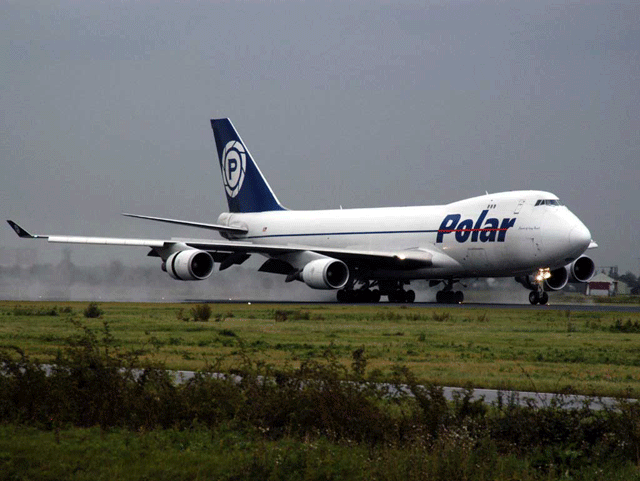DHL Polar Will Impact Asia Rates

San Francisco – Now
that DHL will be guaranteed freight capacity on Polar cargo aircraft for
the next two decades, U.S. West Coast shippers are anticipating a softening
of freight rates soon.
“When you have more players operating
in any trade lane, the pressure to compete on price is a greater factor,”
said Anthony Joss, an air cargo analyst in Seattle, Washington.
“This will give UPS and Fedex a lot
more to worry about on the Transpacific routes.”
DHL, the express delivery arm of Deutsche
Post, industry analysts agree will be made even more competitive by virtue
of having access to additional cargo space on Atlas Air—another
subsidiary of New York-based Atlas Air Worldwide Holdings.
“Warehousing is at a premium here,”
said Joss.
“This strategic partnering will mean
that shippers will also have access to more of that space,” said
Joss.
But for many in the Pacific Rim shipping
and forwarding community the move means more than just a price war.
“The move is especially welcome because
of the access it gives us in China,” said Adam Falcon, a freight
forwarder in Tustin, California.
“When the DOT (U.S. Department of
Transportation) awarded Polar four more weekly legs to that market, we
were pretty excited.”
Given all the political concern in recent
months over foreign investment in U.S. companies, however, the deal will
no doubt be scrutinized closely by government regulators.
The widely reported letter of intent signed
by both parties gives Polar $150 million in cash from DHL in exchange
for a 49 percent equity stake. This includes a 25 percent voting interest.
“The government would be foolish to
block this arrangement,” said a South San Francisco-based Customs
broker.
“As it stands now, there’s not
enough capacity on existing routes to the Far East during peak seasons.
“We need more competition there…not
less.”
Polar and Atlas combined operate the world’s
largest fleet of 747 freighters.
For California’s flower shippers,
this means more space when volumes surge.
“And traffic is much more balanced
now,” said Alice Dupont, a shipper based in Redwood City, California.
“We are sourcing almost as many roses
as we ship. The whole business has been globalized.”
Completion of definitive documentation,
meanwhile, is expected to close late this year or early in 2007.
As reported Polar will continue to operate
as an independent company and there will be no integration with DHL or
any of its units.
Stay tuned.
(Patrick Burnson)
|



